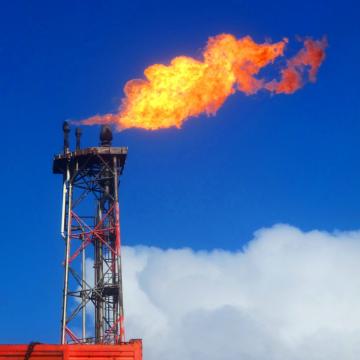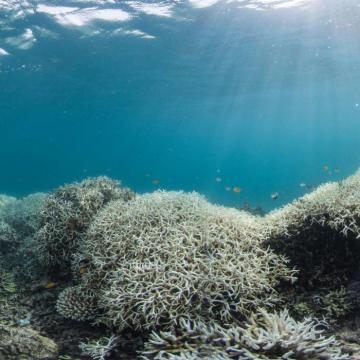-
NewsDuke has a goal of being a “climate university,” Nicholas School of Environment Dean Toddi Steelman said in introducing a panel discussion on Climate Change Science during Research Week. She said it’s a vision in which the university’s focus on climate informs every aspect of its mission, from education and operations to community partnerships – and, of course, research.
-
NewsInvesting tens of billions of dollars now in programs that enhance environmental protection and boost early-stage wildlife disease surveillance could reduce the risk of future animal-to-human pandemics by up to half and save millions of lives and trillions of dollars in losses annually.
-
NewsUsing satellite images, scientists have detected hundreds of very large and previously unreported methane releases at oil and natural gas production sites across the globe.
-
NewsA new initiative is putting a new emphasis on climate change in the curriculum, faculty and student research, campus policy and student life. "What we have to address is how do we, as one of the premier universities in the world, rise to the occasion that this moment now demands from us?” said Nicholas School Dean Toddi Steelman.
-
NewsA new analysis reveals that the majority of the ocean’s surface has experienced extreme heat regularly since 2014.
-
NewsMany North American tree species have begun to slowly migrate northward in response to global warming, but western and eastern forests are responding differently. A new Duke-led study reveals why.
-
NewsDeforestation and climate change have made parts of the tropics much hotter and are associated with a reduction in the number of hours each day when outdoor labor can be safely performed there, a new study finds.
-
NewsAs more and more hours of the day become too hot for outdoor labor in many tropical and subtropical regions, annual economic losses could reach $1.6 trillion annually.
-
NewsA new analysis provides state-by-state projections of the health and economic benefits the U.S. will see by 2030 if we begin reducing fossil-fuel emissions now.
-
NewsLori Bennear and Tim Johnson discussed two bills under consideration in Congress and their potential impact on the reduction of carbon emissions and more.
-
NewsClouds of smoke and ash from wildfires that ravaged Australia in 2019 and 2020 triggered widespread algal blooms in the Southern Ocean thousands of miles downwind to the east, a new Duke University-led study by an international team of scientists finds.
-
NewsWarming waters along the Western Antarctic Peninsula have led to declines in the diversity and distribution of the region’s plankton population and its ability to absorb climate-warming carbon dioxide from the atmosphere.
-
NewsPopulations of giant pandas in the wild are more fragmented and isolated than they were 30 years ago and many continue to face a high risk of extinction despite recent gains in the species’ overall numbers, a new study by Chinese and American scientists finds.
-
NewsReducing emissions of methane, a short-lived but super-potent greenhouse gas, is the most cost-effective way to slow the rate of Earth’s warming in coming decades, a new United Nations report finds.
-
NewsWhen it comes to storing carbon during prolonged periods of drought and heat, wooded peatlands at low-latitudes have a three- to five-fold advantage over other peatlands. An ancient class of slow-growing fungi is the reason why.











